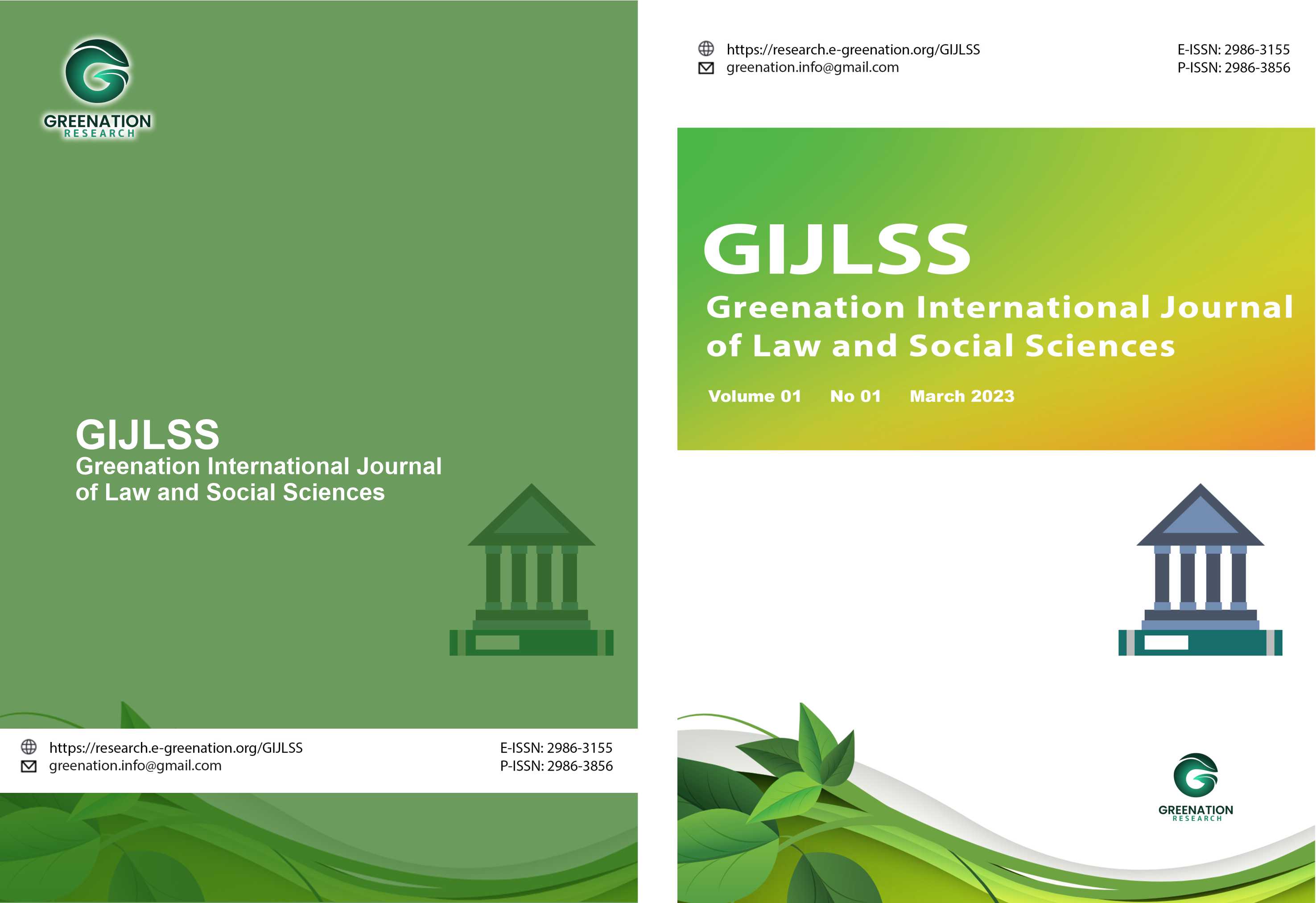Land Policy Reconstruction from the Notary Authority Perspective: Optimization Efforts for Electronic Land Registration System
DOI:
https://doi.org/10.38035/gijlss.v2i4.304Keywords:
policy reconstruction, electronic land registration, notary authority, digital transformation, digital verification systemAbstract
This research examines the urgency of reconstructing land policy in the context of digital transformation of the land registration system, focusing on the expansion of notary authority. Using a normative juridical research method with conceptual and statutory approaches, this study analyzes the transformation from conventional to electronic land registration systems. The results indicate that optimizing the electronic land registration system requires three main pillars: adequate technological infrastructure, a comprehensive legal framework, and human resource capacity development. The implementation of electronic systems has proven to increase time efficiency by 60% and reduce operational costs by 40%. The role of notaries has undergone significant expansion, including authority for electronic document verification and digital signature validation. The optimization model developed includes land database integration, digital verification systems, and artificial intelligence-based monitoring mechanisms. The implications of this research provide theoretical and practical foundations for land policy reform that is adaptive to digital technology developments.
References
Hartanto, J. (2024a). Kerangka hukum pendaftaran tanah elektronik. Jurnal Hukum Administrasi, 11(1), 45-60.
Hartanto, J. (2024b). Optimalisasi fungsi notaris dalam sistem pendaftaran tanah. Jurnal Hukum dan Teknologi, 9(2), 78-93.
Kusuma, R. (2024). Analisis durasi layanan pertanahan. Jurnal Administrasi Publik, 9(1), 67-82.
Nugroho, A. (2023a). Kepastian hukum transaksi elektronik. Jurnal Ilmu Hukum, 16(2), 89-104.
Nugroho, A. (2023b). Reformasi sistem pertanahan. Jurnal Kebijakan Publik, 12(3), 145-160.
Rahmawati, A. (2023a). Risiko manipulasi dokumen pertanahan. Jurnal Hukum Administrasi, 10(2), 89-104.
Rahmawati, A. (2023b). Transparansi layanan pertanahan. Jurnal Kebijakan Publik, 7(1), 156-171.
Rahmawati, A., & Putra, D. (2023). Verifikasi digital dalam praktik kenotariatan. Jurnal Cyber Law, 8(2), 112-128.
Suhartini, E. (2023a). Kewenangan notaris era digital. Jurnal Kenotariatan Indonesia, 9(1), 56-71.
Sukmawati, R. (2024). Edukasi hukum oleh notaris dalam pendaftaran tanah. Jurnal Ilmu Hukum, 15(1), 89-104.
Widodo, S. (2023). Transformasi digital pertanahan. Jurnal Administrasi Publik, 11(2), 78-93.
Wijaya, S., & Kusuma, R. (2023). Kompetensi digital notaris. Jurnal Hukum Kenotariatan, 7(2), 156-171.
Wala, G. N. (2023). Existence of Customary Land According to the Basic Agrarian Law. Aurelia: Jurnal Penelitian dan Pengabdian Masyarakat Indonesia, 2(2), 1143-1146.
Wala, G. N., & Rasji. (2023). Problems of Tax Collection by the Tax Mafia in the Perspective of Tax Law. Aurelia: Jurnal Penelitian dan Pengabdian Masyarakat Indonesia, 2(2), 1138-1142.
Downloads
Published
How to Cite
Issue
Section
License
Copyright (c) 2025 Intan Hanisa, I Gusti Ketut Ayu Rachmi Handayani, Lego Karjoko

This work is licensed under a Creative Commons Attribution 4.0 International License.
Copyright :
Authors who publish their manuscripts in this journal agree to the following conditions:
- Copyright in each article belongs to the author.
- The author acknowledges that the Greenation International Journal of Law and Social Sciences (GIJLSS) has the right to be the first to publish under a Creative Commons Attribution 4.0 International license (Attribution 4.0 International CC BY 4.0).
- Authors can submit articles separately, arrange the non-exclusive distribution of manuscripts that have been published in this journal to other versions (for example, sent to the author's institutional repository, publication in a book, etc.), by acknowledging that the manuscript has been published for the first time at GIJLSS.























